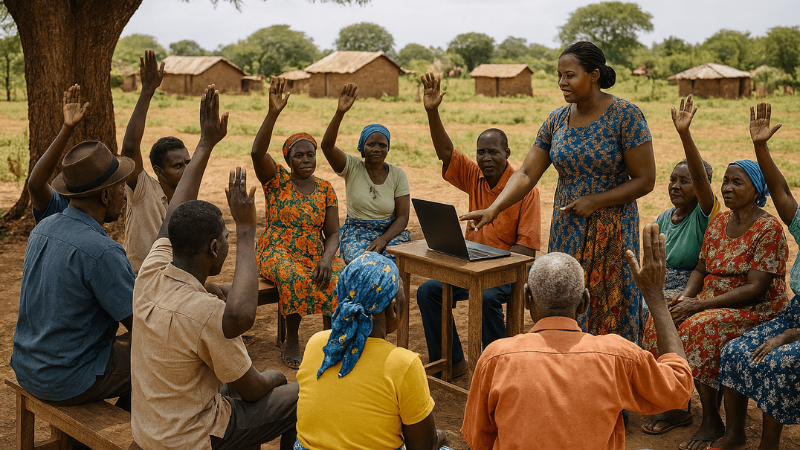Advocacy for Inclusive and Sustainable Food Systems Transformation
Voices united for fair, inclusive, and sustainable food systems.
Focus:We aim to influence policy and practice at all levels to create an enabling environment for food producers and consumers. FRA leads and coordinates evidence-based advocacy through:
Policy engagement, dialogue, and public debates
Policy engagement: Stakeholder engagement ensures diverse perspectives and evidence shape public policy, leading to effective and sustainable outcomes for communities.
Dialogue: An evidence-informed, collaborative discussion among stakeholders to find practical solutions and build consensus on complex policy issues.
Public debates: Public debates inform citizens and hold officials accountable by presenting opposing viewpoints, potentially mobilizing action on specific policy issues.


Advocacy campaigns across the food system
Food justice: These campaigns empower marginalized groups to demand equitable, healthy food access by addressing systemic issues like inequality and racial injustice.
Environmental sustainability: Advocacy campaigns promote ecologically sound food practices, targeting policy and corporate behavior to combat climate change and biodiversity loss.
Public health: These campaigns improve nutrition outcomes by influencing food policy, marketing, and labeling to promote healthier eating habits and food accessibility.
Participation in consultative and policy-making processes at all levels
Inclusive governance fosters legitimacy: Engaging diverse stakeholders in policy ensures legitimacy, accountability, and a wider range of perspectives shapes better policy development.
Improved policy outcomes: Active participation gives governments local knowledge and ideas, improving policy design and public ownership.
Requires careful management: Success requires overcoming challenges like unequal representation, resource limits, and public frustration. It demands careful planning and genuine government commitment.


Strategic partnerships and collaborations with state and non-state actors
Pooling resources and expertise: Sharing knowledge, skills, and funding enables organizations to maximize collective impact, achieve economies of scale, and more effectively address challenges
Enhanced legitimacy and service delivery: Consistent, high-quality public service builds trust, enhancing an organization’s legitimacy and securing vital support for its initiatives.
Addressing complex challenges: Strategic multi-stakeholder partnerships combine diverse strengths to collaboratively tackle complex challenges like climate change, creating lasting solutions.
Development of advocacy platforms at local, national, and regional levels
Platform for collective voice: Advocacy platforms allow diverse groups to organize and amplify their collective voices, influencing decision-makers more effectively than individual efforts.
Capacity building and empowerment: These platforms build sustained local advocacy capacity, empowering vulnerable groups by strengthening leadership and ensuring their issues are addressed.
Influence and accountability: Using evidence and communication, advocacy platforms influence policy, shape public opinion, and hold authorities accountable for commitments that benefit communities.

Join the Movement for Food Systems Transformation
A just, inclusive, and sustainable food system is possible—but only if we advocate for it together.
